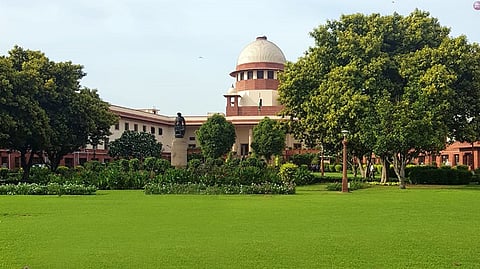
- News
- Columns
- Interviews
- Law Firms
- Apprentice Lawyer
- Legal Jobs
- हिंदी
- ಕನ್ನಡ

The Supreme Court on Wednesday issued fresh guidelines to be followed by institutions regulating and overseeing compliance with environmental laws in the country [TN Godavarman Thirumulpad vs Union of India and ors].